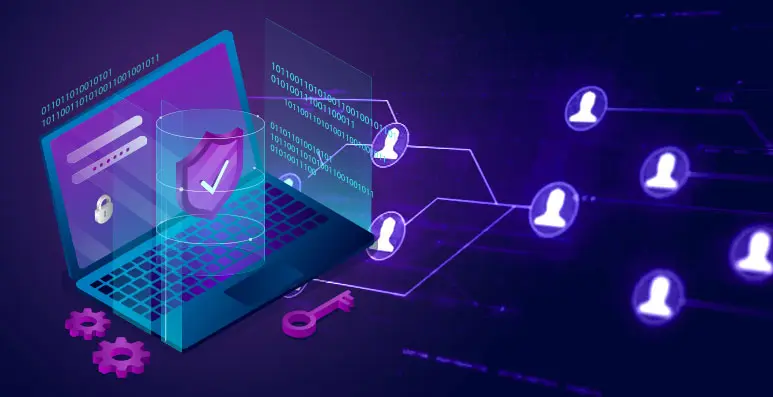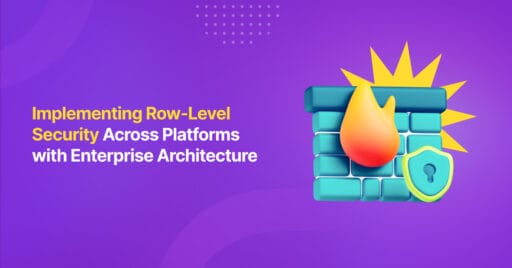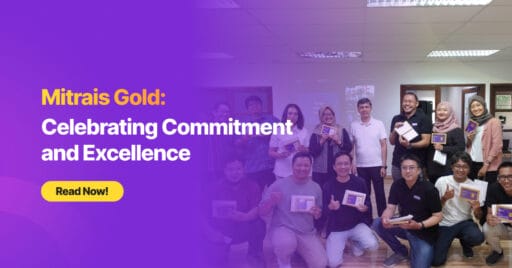Security in software development can no longer be a “nice to have” or an afterthought. Security must be front of mind whenever we are producing software solutions, whether that be in PWA, Desktop software solutions or mobile apps. We know that there is a rise in ransomware and cyber-attacks, and we often hear about data leaks, even from organisations that hold the most sensitive of data.
Developing secure software takes a laser focus from the outset of any project, as well as a massive effort on behalf of all contributors to ensure that security is embedded in every single part of a software development project.
How Agile Development Impacts on Security
With the increased expectation on new features and more frequent releases, Agile has become the method of choice for developers wanting to deliver for their customers. The challenge comes in maintaining high-security standards alongside the rapid pace of development. With new releases going out more regularly, and the expectation on the business being that this will continue indefinitely, security can become an afterthought to the functionality and stability of the new release. Security measures need to be adapted to the agile process, rather than hindering the development progress. Integrating specific security guidance and tools for teams at all stages of development, from requirements capture to testing, is key to providing a secure software solution that meets the business needs for releases.
Learning and Education
Developers must show a willingness to adapt to the realities of modern software security. Providing proper training for your development team is a great way to encourage and expand their skills. Regular activities where developers can analyse a project from the perspective of a hacker and literally try to break in to the software provides practical hands-on experience for your team with the flaws in the software and is more likely to ensure they don’t make the same mistakes again. By continuing to highlight the importance of secure software development through regular activities, you ensure that it remains front of mind for all developers.
Quality Assurance (QA)
QA is no longer relegated only to the QA Team. All code in a software solution should be reviewed by your developers, with a focus on overall security, before turning the project over to QA. Daily unit testing and peer review help to mitigate the ‘tunnel vision’ often experienced by developers and ensure that minor errors can be caught early and save your software from attack. A check for convoluted code will also help, as the simpler the design, the easier it is to make it secure. The more complex the project, the more holes you may create that need to be fixed. A dedication to security as part of the QA process ensures strong checks and balances for organisations that fall into the existing regular cadence of operation.
Certification
Security isn’t only about what you say, but about how you prove it. Certification such as ISO 27001:2013 is a peak security certification offered in the software industry and demonstrate a commitment to all aspects of security within your organisation.
ISO stands for the International Organisation for Standardization and has been a major global player in ensuring quality and safety in both products and services in international trade. ISO 27001:2013 is the standard for “Information technology, security techniques and information security management systems”, and it ensures that any certified organisation developing software has a framework of policies and procedures that control information risk management.
ISO 27001:2013 Certification is often a mandatory requirement in any bid or tender for the implementation of or build of a new software solution, driven by the IT team, CIO or Risk Officer in larger organisations.
Mitrais’ IT Operation is ISO 27001:2013 compliant and certified, meaning that we can offer our partners the confidence that we take a systematic approach to managing risk, and have documented processes to cater for any eventuality, including data breaches and security scares. ISO 27001:2013 Certification ensures that you have peace of mind and that security is front of mind in the organisation.
Security simply cannot be an afterthought for software developers. It must be a multi-level approach across the organisation to ensure that you are developing secure software that meets the demands of your business operations, without compromising the data of your customers. Hacking and cybercrime are not going to suddenly stop, and so the responsibility falls on organizations to ensure that their software is secure, and security is embedded in every part of the software.
If you agree that security in software development is not simply an afterthought or “nice to have” and want to ensure that your software is developed with security ingrained, speak to our team at Mitrais. Our software engineering team will help you in achieving your objectives, in line with the implementation of the best Agile practices.






